FORWARD OPERATING BASE BERNSTEIN, TUZ, Iraq - Staff Sgt. Conan Thomas and his Army 'battle buddy,' Sgt. 1st Class Britt, have been working together for nearly two years. It's not your run-of-the-mill partnership, though.
Britt has never said a word to Thomas, but the rapport between the two is unmistakable. Thomas makes sure that Britt gets paid when he's done his job, and Britt knows that Thomas will always be there for him. There's a mutual trust in their relationship - each knows the other won't let him down.
"It took a year and a half to get him to this point," said Thomas, kneeling down to pet his German Shepherd. "A year and a half for Britt and I to have this outstanding relationship."
Thomas and Britt are assigned to the 148th Military Police Detachment and attached to the 3rd Infantry Brigade Combat Team, 25th Infantry Division during their deployment. Thomas, a Cincinnati native, a member of the Military Police Corps, went to a special military school to become a dog handler. Britt is what's known as a PEDD - a Patrol/Explosive Detection Dog. That means he can be used for intimidation purposes and sniff out anything from detonation cord to bulk explosives.
Britt is definitely intimidating, according to Pvt. 1st Class James Frey of Camden, N.J. Frey volunteered to be the bad guy during an April 8 training session with Thomas and Britt, which entailed running away when told to stay put and then letting the Military Working Dog pounce on him to stop his flight - but not until he'd finished a class on how to behave so as to actually train the dog.
"I didn't get hurt, so it was awesome," said Frey. "He's very powerful. I did this last week with a friend of mine who's a lot smaller than me, and the dog was really blasting him around."
His snout covered with a thick, leather muzzle, Britt was only able to knock Frey down and bark menacingly.
Part of the instruction Frey had received from Thomas was to hit the dirt and curl into a ball as soon as Britt bumped him - and that wasn't a problem, considering Frey only outweighed the dog by about forty pounds.
"Britt is trained on a bite sleeve, but we like to use a whole bite suit just for the safety of the decoy. Today we used a muzzle because we don't have all the proper training equipment at FOB Bernstein," said Thomas.
"How the decoy (Frey) acts when he goes down is important to make the training good for the dog. The drive for the dog is the bite, and he can't bite without us having at least a bite sleeve," said Thomas. He can only train Britt this way every ten days or so - otherwise he'll get frustrated by not 'winning' and may start to lose the motivation to do what he's trained to do.
"It's just like anything else," said Spc. Jason David, who is also a MWD handler at FOB Bernstein. "If you don't train with it, you'll lose it."
David's dog, Sgt. Bandit, is trained specifically for detecting explosives; he's what's known as a Specialized Search Dog. The five-year old English Springer Spaniel can unearth a hidden bullet or discover the faintest trace of a chemical used in bombs.
During the April 8 training exercise, Bandit easily tracked down five pounds of C4 explosive that David had carefully hidden under a trash can at FOB Bernstein.
"I use what's called a 'trigger' for him. When he wears his vest, he knows it's time to work," explained David. After Bandit finds what he's looking for during training, he gets to play catch with a neon-colored tennis ball.
"The playing afterward is like the paycheck for the dog - that's what makes them want to work," said Thomas.
Although they have two very different MWDs, both Thomas and David use special verbal and visual commands to let their dogs know what to do next.
"Not only do you have to trust your dog, but he has to trust you as well," said David.
When either of the dogs has to do his job, everything is put on the record. In fact, Thomas and David even keep detailed logs of training; without training records, the dogs' findings may not be admissible in court.
"We don't have a full scent kit," said David. With the kit, the training could be even more thorough. Since there are different kinds of explosives used in Iraq than stateside, the MWD handlers need a theater-specific scent kit to fully train the dogs for their mission here.
Even without all the training aids that bigger bases are well-stocked with, the FOB Bernstein working dogs and their handlers are doing everything they can to stay current on training. They often accompany the Soldiers of the Special Troops Bn. on missions, doing what they can outside the wire to help.
"German Shepherds and Spaniels are known for their intelligence; that's why we use these dogs," said David. "They have the smarts to go and find what we need them to find."
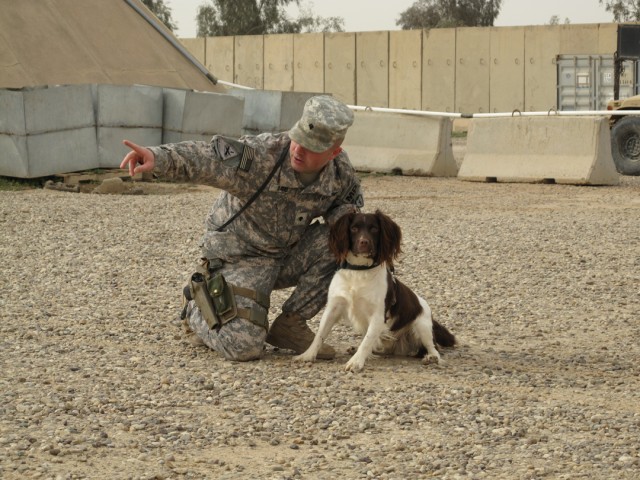
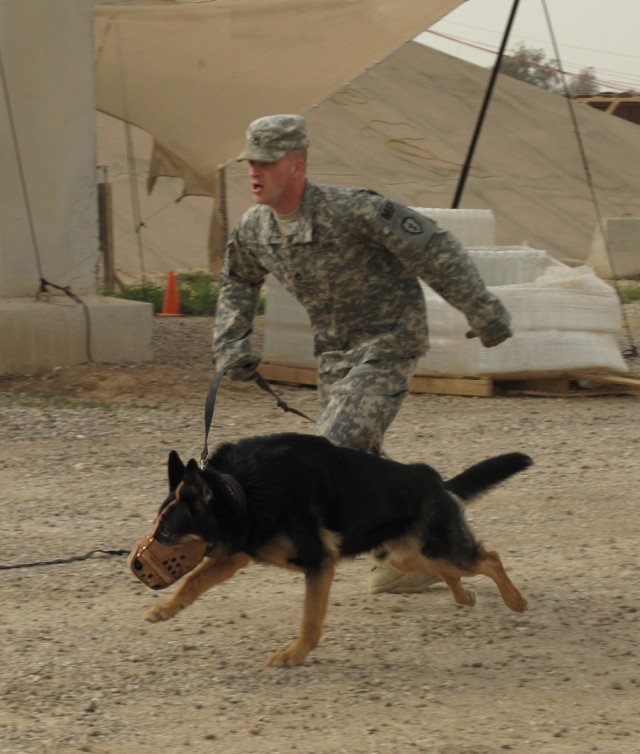
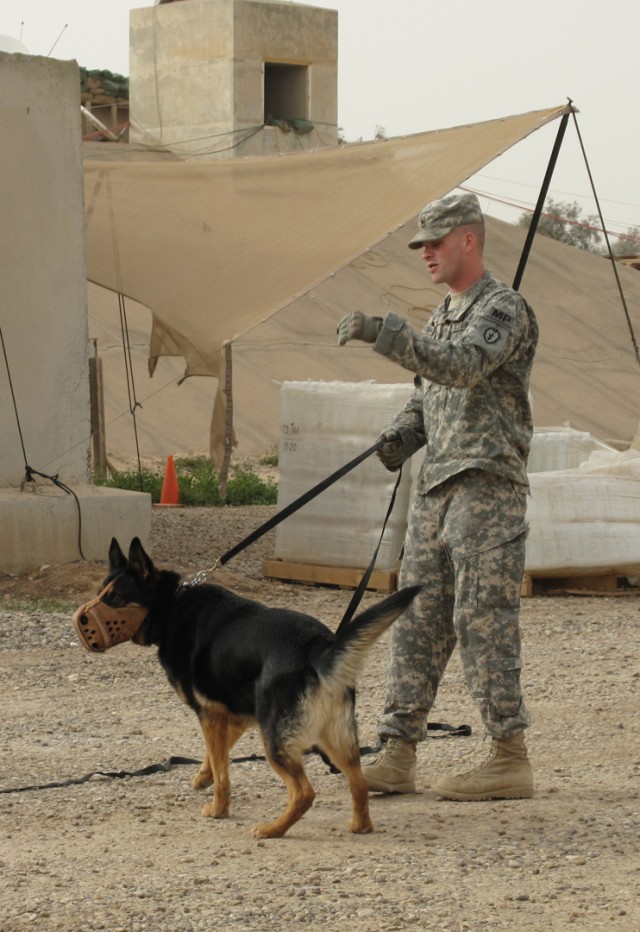
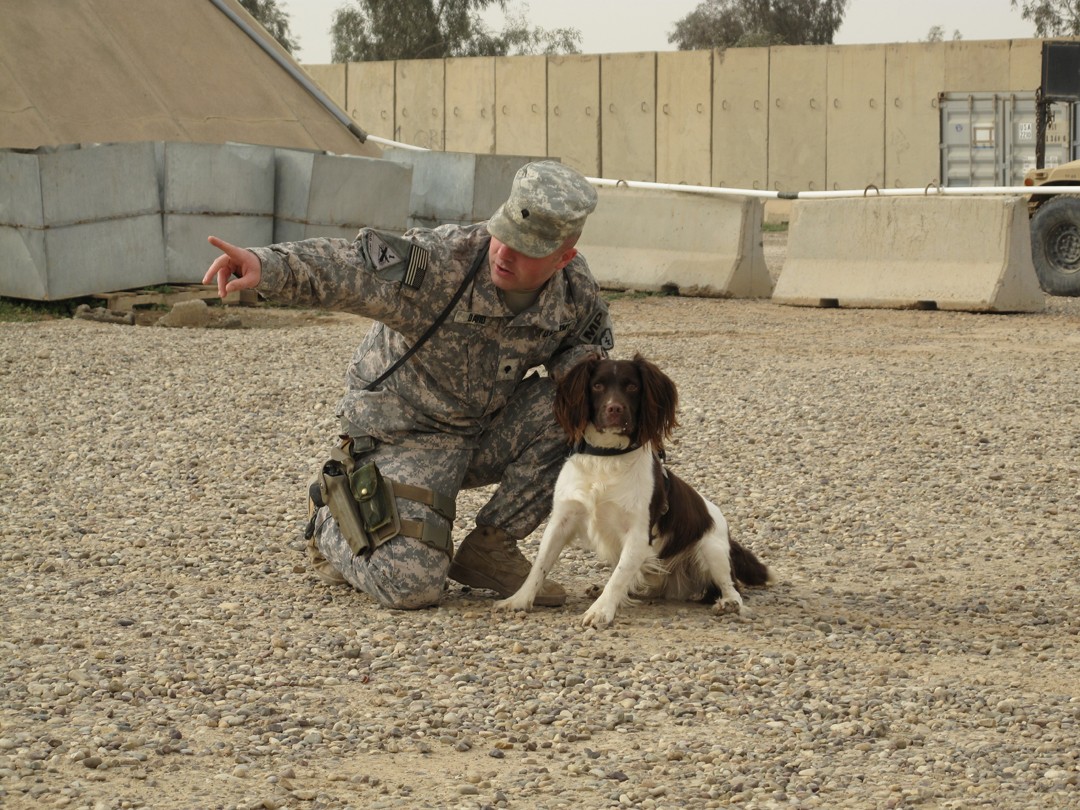

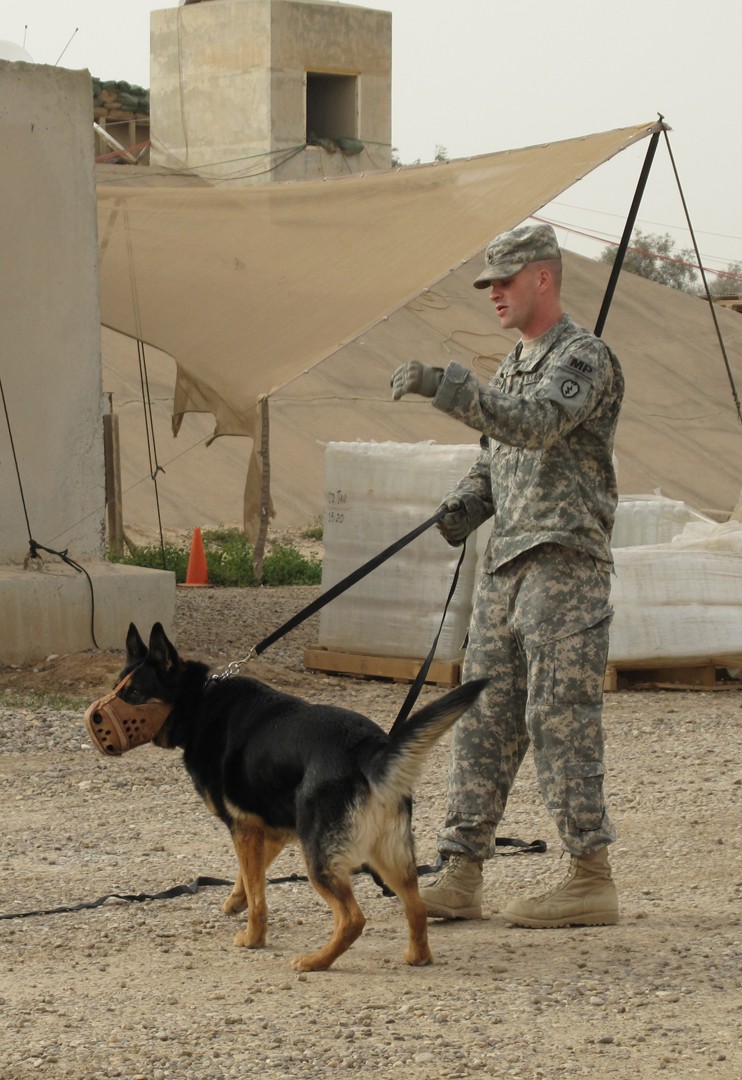
Social Sharing